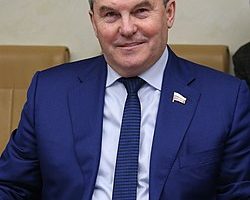
BY GIRMACHEW GASHAW
Today’s guest is Nezha Alaoui M’Hammdi, who is also the current Ambassador of His Majesty the King of Morocco to Ethiopia and Djibouti since 2016. She is also a senior fellow at the Policy Center for the New South (since 2020). She served as the first Permanent Representative of the Kingdom of Morocco after its return to the African Union in 2017 and to the Peace and Security Council of the AU in April 2018. She is currently dean of the Council of Arab League Ambassadors to Ethiopia.
She also served from 2013 to 2016 as an Ambassador of Morocco to Ghana, Togo, and Benin, becoming the first Moroccan female Ambassador of the Kingdom of Morocco in Africa. After joining the Moroccan Ministry of Foreign Affairs in 1989, Nezha Alaoui M’Hammdi served mainly in Italy and Ghana.
During her assignment, from 2005 to 2009, to the headquarters of the Ministry of Foreign Affairs in Rabat, she first handled relations with the European Union Commission, the European Union, mainly the European Parliament, and the Council of Europe. She was also a member of the commission that drafted the advanced statute negotiated between Morocco and the EU.
From 2009 to 2013, Alaoui M’Hammdi was appointed deputy director in charge of African affairs at the Moroccan Foreign Ministry. Nezha Alaoui M’hammdi Holds a PhD in international relations. After graduating from high school, she joined the National School of Public Administration (ENAP), where she obtained her degree in 1989.
She is also a researcher, especially in African affairs. She was collaborating on several matters with the French Institute of International Relations (IFRI) and the European Institute of the Mediterranean (IEMed). Within “Cesem”, a research group affiliated with the HEM School of Management in Rabat, she was the co-chair of the Morocco-Africa Chair.
She is also the author of several academic works on the research program “Atlantic Future” with the Barcelona Centre for International Affairs (CIDOB), which aims to strengthen relations between Morocco and the African continent in the Atlantic area (2015).
Alaoui M’Hammdi participated in the executive training seminar at the Near East and South Asia Center for Strategic Studies (US Department of Defense) in 2007 and in the regional program of the United Nations Institute for Training and Research (UNITAR) on conflict prevention and peace building in Africa in 2009.
The Ethiopian Herald had a brief stay with the ambassador to learn more about Morocco and Ethiopia’s bilateral relations, the 60th anniversary of the Africa Union, and the fate of Africa in the coming days. Thank you very much, Ambassador, for your time and willingness to make this interview possible. Have a nice read!
The African Union Commission, which was reinstated by the AU, is now celebrating its 60th anniversary. At this point, how do you evaluate AU’s journey over the past six decades?
As you said earlier, the African Union is marking its 60th anniversary with diverse programs. Roundtable discussion was one of the platforms that enabled diplomats, international organizations, and Ethiopian officials to think and reflect on ideas on pan-Africanism, the idea that peoples of African descent have common interests and should be unified. When our forefathers first established OAU just 60 years ago, they were thinking about the Renaissance of culture in Africa. Historically, pan-Africanism has often taken the shape of a political or cultural movement.
As you know, 60 years have elapsed since our institution, the African Union, was created. However, the former Organization of African Unity (OAU), had the purpose of unifying African countries as one entity. After six decades, we are still going down the path that our founding fathers, who created the African OAU, asked us to take. What is pan-Africanism for us? How do our youth understand the idea? How do we perceive and use culture as an asset for Africans? Unfortunately, this soft power is not yet owned by its continent or its population, knowing that it is a very strong means to tie up African countries and African populations. How do we work on the importance of industry, creative and cultural industries in Africa? Most of the time, we don’t give enough space and budget to culture in our irrespective countries, knowing that it is part of our identity.
If I take a country like Ethiopia, with one of the oldest civilizations in the world, and also the cradle of humanity, what does culture mean? That’s why we had the privilege to talk about cultural blessings in Ethiopia and Africa as a whole. How can we use culture to bridge our differences? I had also the privilege to brief His Excellency, the Honorable Minister of Culture and Sport of Ethiopia as he just traveled to Morocco to attend a ministerial conference on culture. My capital, Rabat, has been declared the African capital of culture during these two last years, 2022 and 2023. The Rabat Declaration, attended and signed by the different ministers and African delegations stressed the need of giving more emphasis and budget as well as visibility to African cultures to unite African countries, but also to use that asset as a soft power in the world.
Can you tell us about the current relationship between Morocco and Ethiopia? What are the areas of cooperation?
Our bilateral relationship had a big impetus in 2016 when His Majesty, King Mohamed VI, visited Ethiopia. The long-standing relationship between the countries is manifested in the socioeconomic and political fields since the establishment of the African Union.
More than 15 agreements had been signed at that time, and we are still implementing this legal framework. The bilateral relations are rooted by virtue of the fact that both countries are among the founders of the African Union (AU). It has also an opportunity to launch some investments coming from Morocco, such as the Fertilizer Plant in Dire Dawa. It has been growing more than ever before. This month, we have welcomed WAFA Bank, which is number one in Morocco. Bank authorities discuss with Ethiopian authorities the possibility to open a branch here in Addis. And this reflects the growing interest of the private sector in Morocco for the Ethiopian markets.
Morocco strongly believes in South-South Corporation. More than 50 years after our independence as African countries, it’s time for us to rely on our expertise and share our know-how. There is no need to go through other capitals outside of Africa to achieve goals or to make great achievements. We have to rely on ourselves. I’m so glad to say that Ethiopia believes in the same principle, South-South Corporation, in sectors of the highest strategy such as agriculture, health, and all public services. Talking about agriculture, in Morocco, is one of the biggest significant sectors that we have in Morocco because food sovereignty and food security are very important. Without feeding your people, you cannot get peace; you cannot ensure the welfare of your population. And it is one of the fields of cooperation with Ethiopia as well.
As you mentioned earlier, Morocco is now establishing a fertilizer plant in Dire Dawa. Could you tell us the progress of this project?
Two years later, OCP Group, a Moroccan State-Owned phosphate rock miner, phosphoric acid manufacturer, and phosphate fertilizer producer signed a Joint Development Agreement in Ethiopia to implement a fertilizer project in Dire Dawa. The agreement was based on Feasibility, Conceptual, Environmental, and Social Impact Assessments and Hydro & Geotechnical studies that have been conducted. According to the agreement an integrated fertilizer complex will be established in Dire Dawa, using local resources (Ethiopian gas and Moroccan phosphoric acid).
During the first phase, the firm aims to develop a 2.5-million-ton fertilizer production unit, combining Urea and NPK/NPS products, which could reach a production capacity of 3.8 million tons per year. It is firmly believed this project will have significant contributions to meeting Ethiopia’s continuously growing demand for fertilizers (primarily Urea and NPS+). However, the project is progressing slowly. In order to implement an investment of four billion dollars, it takes time in terms of feasibility, bringing together all the components and starting to produce the fertilizer. The objective of the project is very clear: instead of importing fertilizer, producing fertilizer here at home and later on exporting fertilizer to the region as well. Morocco is supplying Ethiopia with more than 90% of its fertilizer. But despite the very good business of OCP here, we want Ethiopia to rely on its factory. So that’s the purpose of building a factory of fertilizer here in Ethiopia.
How do you explain the trade exchange between the two countries?
We still have to work on trade because the geographical distance between the two countries is still perceived as a barrier between the two sides. Meanwhile, we can work on that. I mean, if we are providing 90% of fertilizer, it means that we already have trade routes that are operating. We just have to work on that and convince our private sector to work much more, not only on investment but also on trade.
In fact, despite the modest trade balance recorded by trade exchanges between Morocco and Ethiopia, the trade relations between the two countries show a very promising future, given the huge potential provided by the two countries; markets, as well as their promising economies. In this respect, the trade between Ethiopia and the Kingdom of Morocco has significantly increased in the last few years.
It seems that the opening of a direct flight between Casablanca and Addis Ababa, which we aspire to launch, will constitute a very positive turn in enhancing not only trade exchanges but also the advancement of bilateral relations to the level desired by the two countries. It is to be underlined that Ethiopia absorbs 50% of the Moroccan fertilizers exports to Africa. On the other hand, Most of the Ethiopian exports to Morocco are agricultural commodities. For instance, Beans, Coffee, and Ginger contributed 90% of export in the last ten years. A virtual trade exchange meeting was held between the Moroccan and Ethiopian businesses Trade to enhance trade ties between the two countries.
What African countries should do to be an economically independent continent?
The free trade zone is the most important modern tool for the economic development of regions, but it is not a panacea. Successful implementation requires a sufficiently high level of economic development in the participating countries, logistical accessibility, and developed industry with the prospect of introducing new technologies.
I think the Free Trade Agreement will be signed in 2018. We are going on the right path because the more we will work on regional integration, and free trade among ourselves, the more we’ll work on our economic independence because we are relying on ourselves and we are sharing expertise among ourselves.
Thank you, Ambassador.
Thank you too.
THE ETHIOPIAN HERALD SATURDAY 10 JUNE 2023





